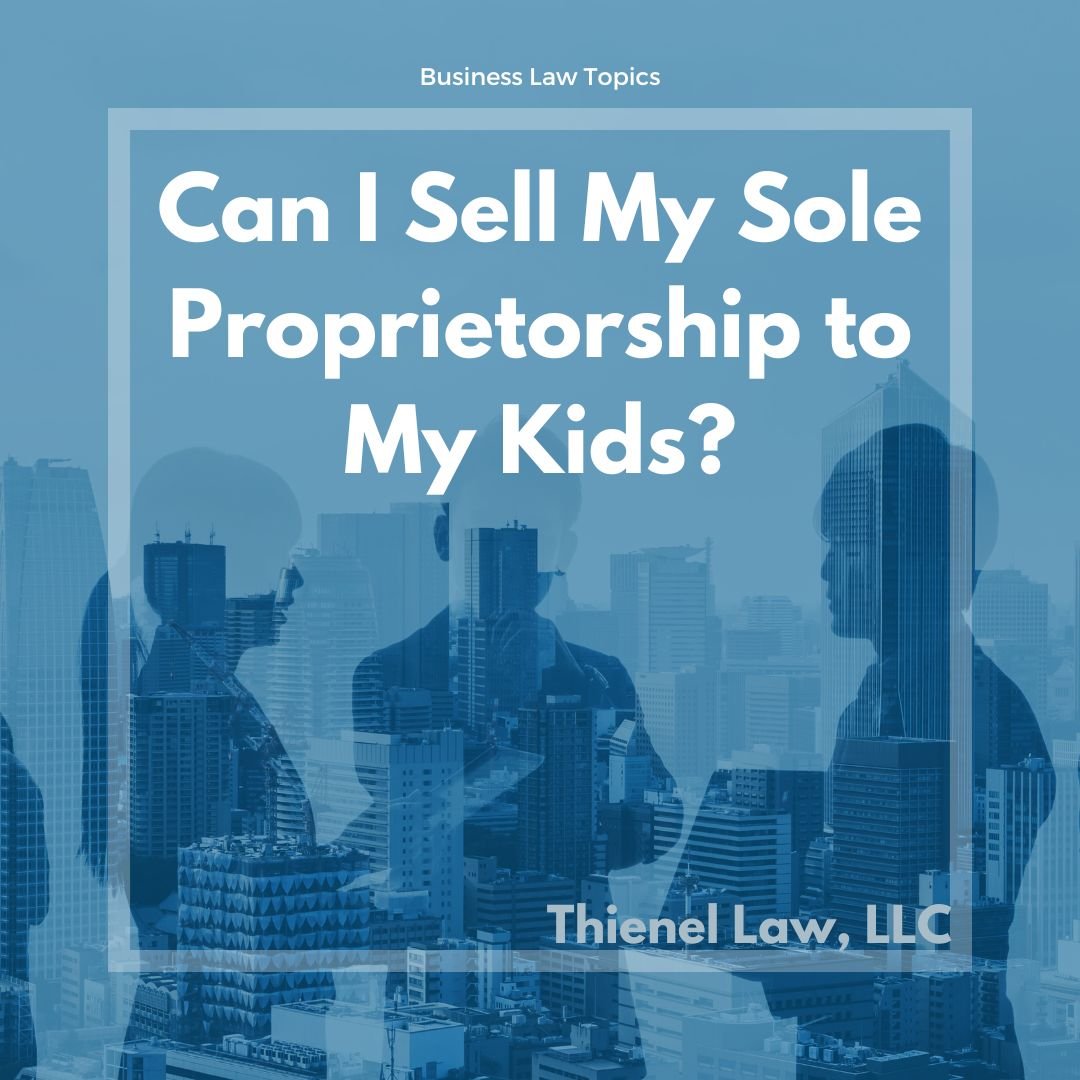
THIENEL LAW BLOG
How to Close a Business: A Step-by-Step Guide to Dissolving Your Company and Tying Up Loose Ends
You’ve made the difficult decision to close your business. Depending on the company, winding down a business can take several weeks or months. If you have a plan and a checklist for closing a business, it can make the process easier. Our Maryland business lawyer explains how to dissolve a business in Maryland in ten steps.
Understanding the Impact of the Job Applicant Fairness Act on Your Maryland Business
The Job Applicant Fairness Act restricts the use of credit reports by employers in making employment decisions. The law applies to current employees and job applicants. However, several exceptions under the law allow employers to use credit histories for employees and job applicants in specific circumstances.
Creating a Trust in Maryland: Your Comprehensive Guide to Protecting Your Assets and Securing Your Legacy
Tidying up financial affairs and documenting one's final wishes are essential tasks that everyone should take care of sooner rather than later. Increasingly, estate attorneys are meeting with clients seeking to control their legacies by creating a trust in Maryland and using advanced estate planning tools.
42 Common Types of Business Contracts: Your Comprehensive Guide to Navigating the Complex World of Legal Agreements
Navigating the world of business contracts can be a daunting task. With a myriad of different types of agreements, each with its own unique terms and conditions, it's easy to feel overwhelmed. Whether you're a seasoned business owner or just starting out, understanding the ins and outs of these contracts is crucial to protect your interests and ensure smooth business operations.
Untangling the Remote Work Tax Dilemma: Navigating Tax Obligations for the Modern Remote Worker
The rise of remote work has brought with it a complex web of tax obligations and tax rules. As a remote worker, you may face uncertainty about your income tax responsibilities, especially if you're working across state lines or even internationally.
From Idea to Operation: Your Essential Guide to Opening a Business in Maryland
Maryland business owners need to know much more than how to serve their clients and customers. They need to know how to open and operate a business that complies with federal and state regulations and laws. Maryland Business Express can help. Our Maryland business lawyer explains MD Business Express and how to open a Maryland business.
2023 Tax Changes: Essential Updates That Could Impact Your Wallet
The Internal Revenue Service (IRS) has announced new tax laws and changes for 2023 that could have a significant impact on your wallet. It's crucial to stay informed and prepared, especially when it comes to filing tax returns for the 2023 tax year. Keep reading for a breakdown of the key updates you need to know.
Supplemental Security Income: COLA 2023 Update
Stay up to date with the latest information on Supplemental Security Income (SSI) and the COLA 2023 update. Our detailed blog post breaks down the changes, eligibility criteria, and ensures you receive the benefits you deserve.
Don't Underestimate the Taxes When Selling Your Business
When selling your business, taxes should not be underestimated. Our informative blog post provides expert advice and practical tips to ensure you navigate the tax implications successfully, maximizing your profits.
Navigating the Gray Area: Legal Implications of ChatGPT Use in Business
Explore the legal implications of using ChatGPT in business and gain valuable insights to navigate the gray area effectively. Our comprehensive guide provides the necessary information to make informed decisions.
What Does Silicon Valley Bank's Collapse Mean For Business?
Discover the aftermath of Silicon Valley Bank's collapse and its implications for businesses. Gain valuable insights to stay ahead and make informed decisions in our thought-provoking blog post.
Single Member LLCs in Maryland: A Comprehensive Guide to Understanding the Benefits and Navigating the Legal Requirements
In this guide, our Maryland business lawyer covers the benefits of setting up a Maryland LLC while explaining the legal requirements under Maryland law you must meet to maintain the benefits of being a Limited Liability Company.
Can I Sell My Sole Proprietorship to My Kids?
You worked hard to build your business for yourself and your family. It is time to pass the company to the next generation. However, what would seem to be a simple task of “giving” the business assets to your kids could create tax liabilities and other legal problems for you and your kids.
How to Form a Professional Entity in Maryland
Licensed professionals can join together to form a business entity in Maryland. They may choose one of several business entities. Choosing the correct professional entity is crucial for protecting your business and personal interests.
Patents: A Primer
Ideas, processes, and designs have intrinsic value. Protecting that value is crucial for individuals and businesses. Patents protect an invention by granting a property right to the inventor.
Financing Your Business: How Do SAFEs Compare with Other Types of Capital Raises?
Financing your business might seem overwhelming. You cannot grow your startup company without funds. However, what is the best way to finance your business while protecting your company and your personal assets?
Financing Your Business: SAFEs vs. Convertible Notes - Which is Best?
It can be difficult for an entrepreneur to obtain seed money for a new startup. Investors want to see a valuation for the company. However, without initial capital investments, getting the company off the ground to create value might be difficult.
Financing Your Business: How Do Convertible Notes Work?
The convertible note, also called a convertible bond, is a financial instrument that lets its holders exchange them for equity in the company. These instruments are usually issued by corporations and governments to raise capital.
Rule 504: Everything You Need to Know
The 1929 stock market crash was the catalyst for federal laws designed to protect investors from companies that made dishonest claims about the financial stability of their businesses.
Liquidated Damages in NDAs
An NDA or nondisclosure agreement protects a company’s sensitive information, trade secrets, and intellectual property. The agreements prohibit employees, vendors, contractors, and other parties from disclosing the company’s confidential information. The agreements also outline when a party can disclose information and the guidelines for doing so.




















